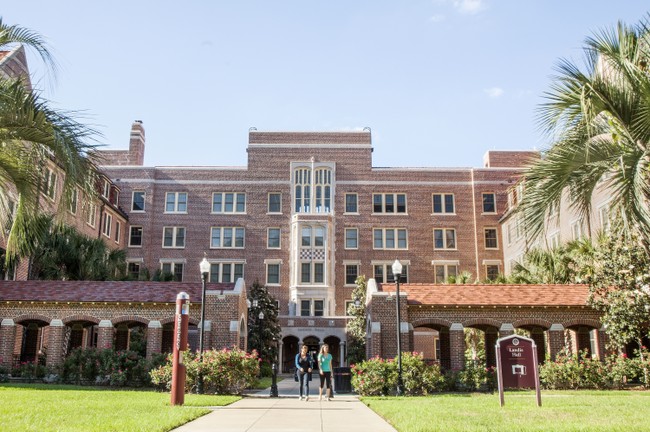Top News
Rebranding DEI: How Colleges Are Getting Around State Bans

Earlier this month I wrote about the University of Texas which was laying off around 60 employees in order to belatedly comply with a state law prohibiting DEI. I say belatedly because the law in question took effect at the beginning of the year but it seems UT’s first reaction wasn’t to get rid of DEI offices and employees but instead to simply rebrand them. For instance, at the University of Texas the Division of Diversity and Community Engagement was renamed the Division of Campus and Community Engagement.
But one of the authors of SB 17, the Texas DEI prohibition, caught wind of what was happening and sent schools in Texas a letter making it clear that renaming offices and shuffling staff titles would not be enough to comply with the law.
The letter warns that any attempts to circumvent SB 17’s provisions by merely renaming DEI offices or positions will not be tolerated. The legislation includes strict enforcement measures, including the potential freezing of university funding and legal actions for non-compliance.
The state senator also warned that school administrators would soon be called before legislators to testify about their efforts to comply with the law. In response to this, UT suddenly got the message and announced it was laying off most of its former DEI staffers who’d been given new titles. Its renamed Division of Campus and Community Engagement was shut down.
Yesterday the NY Times reported that this sort of fake compliance with DEI bans is happening at other schools as well.
At the University of Tennessee, the campus D.E.I. program is now called the Division of Access and Engagement.
Louisiana State University also rebranded its diversity office after Jeff Landry, a Trump-backed Republican, was elected governor last fall. Its Division of Inclusion, Civil Rights and Title IX is now called the Division of Engagement, Civil Rights and Title IX.
And at the University of Oklahoma, the diversity office is now the Division of Access and Opportunity.
In what appears to be an effort to placate or, even head fake, opponents of diversity and equity programs, university officials are relaunching their D.E.I. offices under different names, changing the titles of officials, and rewriting requirements to eliminate words like “diversity” and “equity.” In some cases, only the words have changed.
The same thing is happening at Florida State University. Gov. DeSantis, please call your office.
The school has reshuffled jobs and turned the Equity, Diversity and Inclusion Office into the Office of Equal Opportunity Compliance and Engagement.
And in Georgia, where the state Board of Regents banned schools from requiring diversity statements, Kennesaw State University renamed its DEI office the “Division of Organizational Effectiveness, Leadership Development and Inclusive Excellence.” A finance professor at Kennesaw State said of the change, “As soon as D.E.I. was uncovered as political left, they now reinvent the language and have morphed into the ‘sense of belonging’ crew.”
There are some good comments on this story. Here’s the top one.
In other words, universities are still going to continue to siphon off millions of dollars in tuition to maintain a bureaucracy whose main purpose is to enforce an ever more stringent definition of acceptable thought and action.
The thought police will not be defunded. Here’s another good response.
I would hope that the new offices would at least be more reflective in their practices and take a more evidence-based approach. Studies show poorly implemented DEI training can often be counterproductive. So many of the DEI trainings I’ve gone to utterly infantilize some minority groups. For instance, I’ve been taught by professional DEI trainers (whose only qualification seems to be proclaiming themselves an expert and opening a business) that things like an emphasis on punctuality, objectivity, and the written word are parts of white supremacy culture that must be dismantled and avoided. How are you supposed to have a professional environment that doesn’t emphasize those things? Others work hard to train people to see others not as individuals but the sum total of their demographics and to interpret every possible interaction between people in the worst possible light and as being based on demographic difference.
And of course, there are kangaroo courts that go along with every revolution to enforce this nonsense.
My daughter was brought before the “DEI Panel” at a major university as a PhD student and adjunct instructor to face charges that she was racially insensitive to another PhD student. No investigation. No witnesses. The accuser wasn’t even in the same time zone when the hearing took place, and was never questioned. All that they had was an accusing email. Once my daughter figured out what gathering they were talking about and texted her colleagues who were there to testify that the allegation never happened, the three women of color activists on the panel denied them a hearing, and in a total of 20 minutes reported to the dean that her teaching job should be ended. He did so 25 minutes later.
THAT is the REAL DEI that is happening in universities, and it needs to die.
I could go on. I read the first 20 or so comments and not one of them was pro-DEI. There are some professors and retired professors saying it’s a waste of time and resources. Bottom line, there are still a lot of academics who refuse to join the cult.
Read the full article here


















